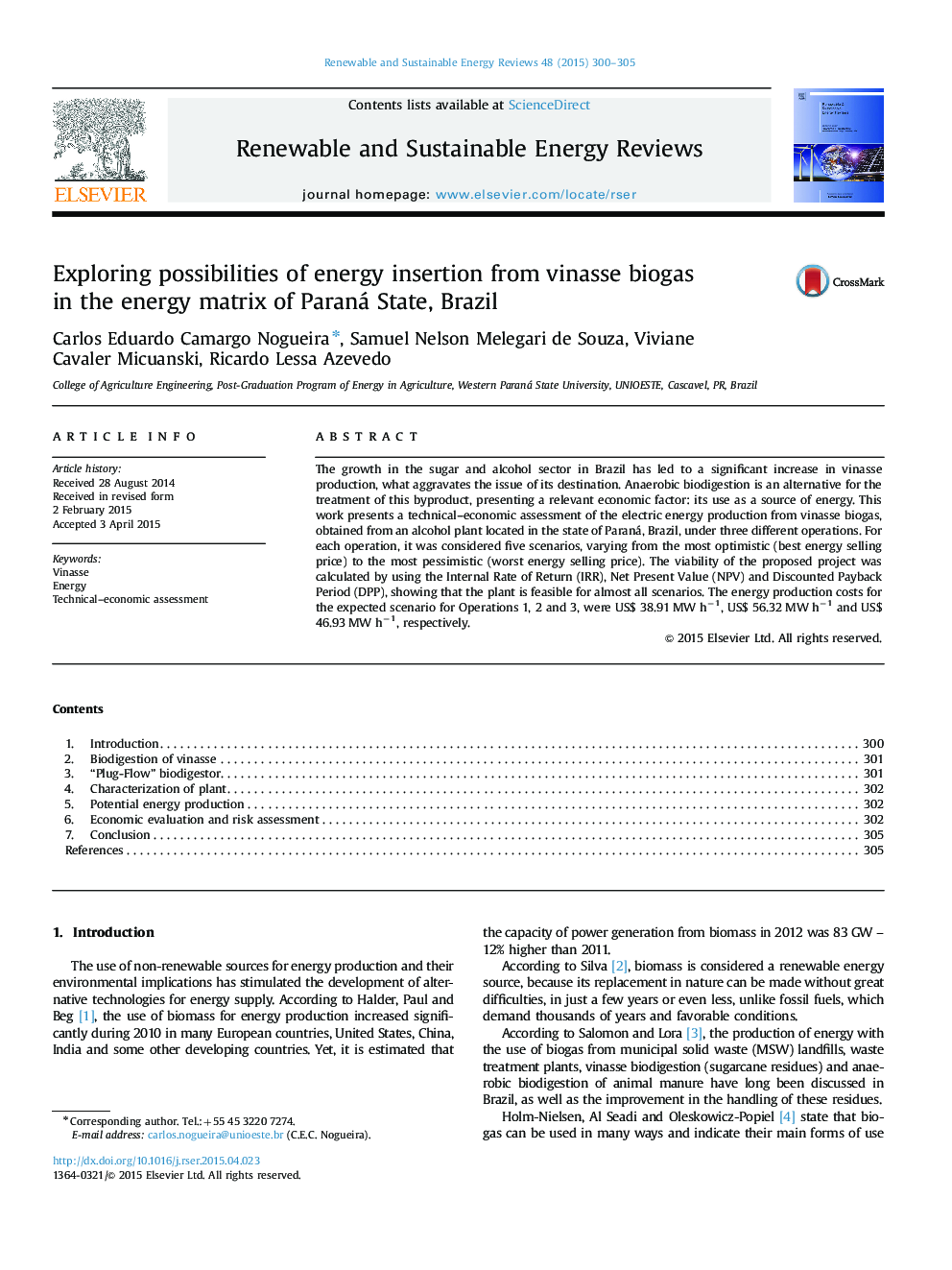| Article ID | Journal | Published Year | Pages | File Type |
|---|---|---|---|---|
| 8116433 | Renewable and Sustainable Energy Reviews | 2015 | 6 Pages |
Abstract
The growth in the sugar and alcohol sector in Brazil has led to a significant increase in vinasse production, what aggravates the issue of its destination. Anaerobic biodigestion is an alternative for the treatment of this byproduct, presenting a relevant economic factor: its use as a source of energy. This work presents a technical-economic assessment of the electric energy production from vinasse biogas, obtained from an alcohol plant located in the state of Paraná, Brazil, under three different operations. For each operation, it was considered five scenarios, varying from the most optimistic (best energy selling price) to the most pessimistic (worst energy selling price). The viability of the proposed project was calculated by using the Internal Rate of Return (IRR), Net Present Value (NPV) and Discounted Payback Period (DPP), showing that the plant is feasible for almost all scenarios. The energy production costs for the expected scenario for Operations 1, 2 and 3, were US$ 38.91Â MWÂ hâ1, US$ 56.32Â MWÂ hâ1 and US$ 46.93Â MWÂ hâ1, respectively.
Related Topics
Physical Sciences and Engineering
Energy
Renewable Energy, Sustainability and the Environment
Authors
Carlos Eduardo Camargo Nogueira, Samuel Nelson Melegari de Souza, Viviane Cavaler Micuanski, Ricardo Lessa Azevedo,
